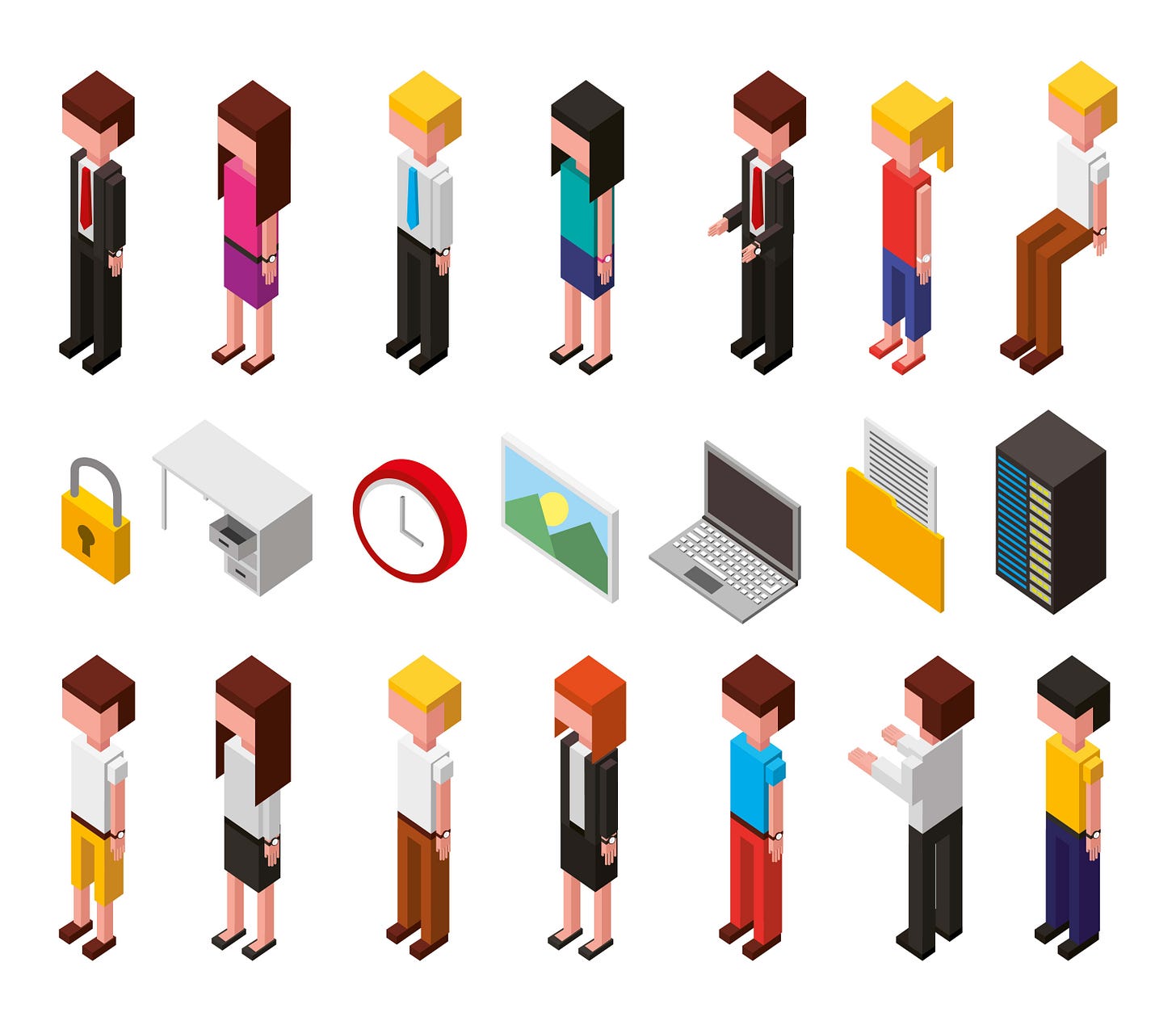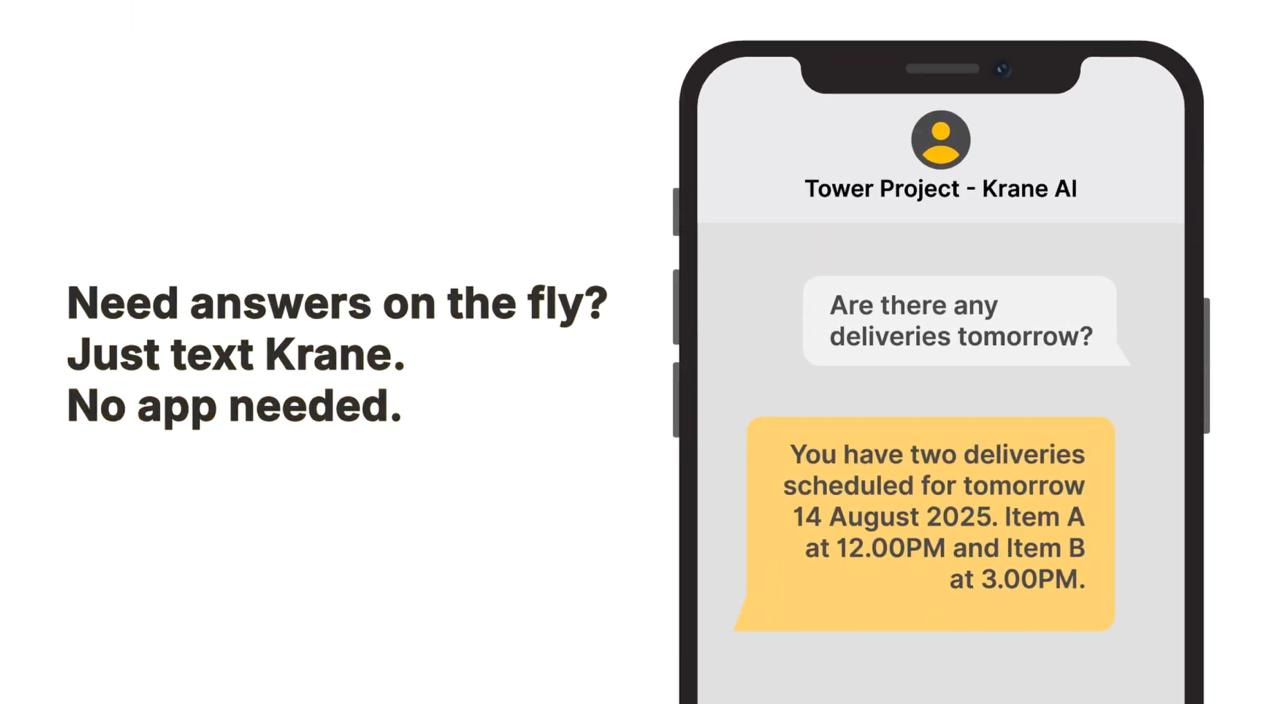AI is coming for us (here's my plan)
How I’m preparing for the biggest shift in the way humans create and deliver value.
👋 Hey, Kyle here! Welcome to The Influential Project Manager, a weekly newsletter covering the essentials of successful project leadership.
Today’s Overview:
AI is creeping into construction—and most project managers don’t have a plan for how to respond.
Ignore it, and your value erodes. Fight it, and you fall behind. This shift isn’t just coming, it’s already here.
Today I’m sharing the two-part strategy I’m using to lead in the AI era—without losing my human edge.
DEEP DIVE
🤖 AI is coming for us (here's my plan)
Filed under: Construction, Frameworks & Tools

Last week, I found myself in a packed jobsite trailer in Los Angeles, eating lunch with a group of construction leaders.
Between bites of burritos and project updates, one question kept coming up:
“So...what are you doing about all this AI stuff?”
What struck me wasn’t the range of opinions. It was how similar they all sounded.
Most PMs were excited: better productivity, fewer boring tasks, more time for creative work.
But the excitement always came with a caveat:
What does this mean for our jobs? Our value? Our future?
One person captured my sentiment when he questioned what kind of work will be available for his 3-year-old son when he grows up. His comment articulated something I've been feeling but hadn't fully processed.
I'm excited about AI. And I'm terrified of AI.
Both feelings can be true in tandem.
After managing $500M+ in construction projects and seeing dozens of tools come and go, I can tell you—this one is different.
Because this AI doesn’t just assist—it thinks and acts. And that changes everything.
The Coming Disconnect
We’re witnessing the start of a profound shift in how humans create and deliver value.
AI is already reshaping every industry I'm familiar with. Content creation, design, supply chain, customer service, and more. These fields are feeling rumblings of change that are impossible to ignore.
I've watched friends who built careers on skills that are suddenly being automated. They're not losing their jobs overnight, but the ground beneath them is starting to feel shaky.
And AI is coming for construction, too. Stuff that took me hours two years ago can now be done in minutes. That makes the barrier to entry pretty low all of a sudden. That's liberating in a way, but also concerning.
What happens when more complex pieces of our projects become automated? And what happens when owners realize they can get 80% of the quality for 5% of the cost? Or effort?
This isn’t me being pessimistic for the sake of engagement. It's just where I think things are headed.
My Two-Part AI Strategy
So, what am I actually doing about all this?
I’m taking two deliberate steps to adapt (and lead) in this new reality:
1. I’m Getting Comfortable with AI Agents
This new wave of AI—Agentic AI—isn’t just another chatbot.
It’s our first real digital teammate.
And like any teammate, you’ve got to know their strengths, weaknesses, and where they fit in your workflow.
The Three Levels of AI (And Why Agents Matter)
Think of AI evolution like this:
Level 1: Basic AI (ChatGPT-style) You ask a question. It gives an answer. Simple input, simple output. Like asking your smartest PM a question—they'll give you a good answer, but that's it.
Level 2: AI Workflows You give AI access to your systems—calendar, schedules, documents. Now it can pull real information before answering. Like giving that same PM access to your project files. Better answers, but you still have to tell them exactly what to do, step by step.
Level 3: AI Agents Here's where it gets interesting. You give an agent a goal, and it figures out how to achieve it. What tools to use, what information to gather, what actions to take.
What Makes an Agent Different
The key difference is agents don't just respond—they reason and act.
You tell your AI agent, "Monitor the electrical gear procurement—flag any impact to the main schedule."
Here’s what it does:
It checks the latest schedule and sees the gear is supposed to arrive in Week 18.
It reads the meeting minutes from your OAC last Friday and sees a decision was made to hold on finalizing the vendor until this Thursday.
It compares that delay against lead time data from the vendor’s PO history and realizes you’re now one week off the critical path.
It sends you an alert that says: "This delay will likely push out electrical rough-in by 3 days unless procurement is finalized today. Here are 2 alternate vendors still within lead time."
Now imagine that—but done automatically, 24/7, across all your processes and tech stack.
In construction, here’s what that looks like:
Instead of asking for the latest PO status, your agent finds it and flags the delay (without asking).
Instead of manually entering updates into a schedule, your agent adjusts it based on real-world conditions.
Instead of reminding a sub to send their insurance certs, your agent tracks it and sends follow-ups automatically.
That’s a big leap forward.
And soon, project managers will work with AI agents every day:
AI agents pull from your databases—schedules, RFIs, documents, procurement log, meeting minutes—and take real action.
It’s like having a second brain that sees the full context, works across apps, and never forgets.
It frees your people up to do what matters most: planning, coordinating, and leading.
Not All AI Agents Are Created Equal
Let’s be clear: not every “agent” deserves a spot on your project.
The word’s getting thrown around a lot. Platforms are rushing to roll out features labeled “agents.” But in reality, it’s just a marketing wrapper on something half-baked.
That's a problem. Because it leads to confused teams, wasted time, lost trust, and no progress for construction.
This will be a core leadership skill going forward:
Knowing what agent to trust, when to use it, and where to plug it in.
14 AI Agents Worth Exploring
Here are examples I'm evaluating—some already in use, others emerging:
📊 Reporting AI Agent
Creates weekly dashboards automatically using job data. Saves hours preparing reports and keeps owners in the loop.
💰 Cost Tracker AI Agent
Tracks real-time job costs across procurement and payroll. Flags overspending early—before it becomes a change order.
📉 Budget Tracker AI Agent
Watches your budget allocations and forecasts future spend. Gives you visibility to prevent slippage before month-end.
💸 Progress Payment AI Agent
Generates and routes pay apps, tracks approvals and holds. Speeds up billing, improves cash flow, and reduces admin headaches.
📑 Contract AI Agent
Manages contract terms, sends legal notices, and raises compliance flags. Cuts down errors, missed deadlines, and manual tracking.
🔁 Change Order AI Agent
Logs and routes COs, updates schedules and cost tracking. Reduces friction, delays, and disputes with clear documentation.
📍 Progress Tracker AI Agent
Monitors site progress and milestone completion. Gives you a real-time pulse without chasing updates.
📂 Document Control AI Agent
Keeps track of versions, approvals, and access. Ensures your team always works off the latest file—without the file hunt.
📝 Meeting Minutes AI Agent
Captures meeting summaries, tracks decisions and commitments. Improves accountability and follow-through after every OAC.
⚠️ Safety AI Agent
Watches jobsite footage to flag hazards and track compliance. Helps catch unsafe behavior early—and report it without delay.
🔮 Forecasting AI Agent
Predicts future project risks based on past performance. Helps you plan better and avoid last-minute firefighting.
🚨 Risk Register AI Agent
Automatically logs and updates live risks across the project based on your data. Keeps your mitigation strategies current and visible.
📆 Production Optimizer AI Agent
Suggests task re-sequencing based on operations science and actual job conditions. Improves timeline accuracy and helps avoid last-minute chaos.
👷 Subcontractor AI Agent
Tracks sub performance, compliance docs, and payment status. Improves coordination, avoids delays, and keeps everyone aligned.
I’m not saying these are magic tools. They’re only as good as how you deploy them.
WANT TO START SMALL?
Check out Krane.
They’ve built (3) field-ready agents that are already in use on live jobsites. Each agent works in natural language—so everyone on the team can use it, no matter how tech-savvy.
1. Smart Link Agent connects submittals, deliveries, and materials into a unified schedule view.
2. Material Agent creates and tracks orders while monitoring actual vs. contractual lead times.
3. Delivery Coordination Agent handles creating, verifying, and tracking jobsite deliveries.
The key is starting with agents that solve real problems your team faces every day.
2. I’m Doubling Down on My Human Edge
While AI handles the repeatable tasks, I’m investing in what it can’t do:
Training and developing your people
Leading a killer pull planning session
Running productive morning huddles that get crews fired up
Walking the site and saying, "Something's not right"
Building the trust that makes difficult projects work
That’s the irreplaceable edge of a great project leader.
So when people ask what I’m doing about AI?
My answer is simple:
I'm using it to buy back time—then investing that time in being more human.
How to Find Your Human Edge
If you're worried about AI, here are some questions to ask yourself:
Where do you bring value through qualities like intuition, judgment, and emotional intelligence?
What trust or relationships drive outcomes on my project?
What part of my leadership is too human to simulate?
What judgment comes from experience—not data?
What part(s) of your work would benefit from a stronger human connection?
Your answers should illuminate important areas to focus on in your projects, and maybe some new opportunities you haven't considered.
Final Thoughts
AI is coming for more of our work than most of us realize. And that's not fear-mongering. It’s just acknowledging reality.
But being human will always matter. And I think it will matter more than ever.
So while I'll continue using AI tools to amplify my work, my big bet is on people. On the value of connection, judgment, and earned trust.
The project leaders who will win the next decade won't be the folks who use AI 100% or the people who reject it altogether. The winners will understand how to use AI to augment their operation and bring the human edge every project needs.
That’s all for today.
See you next week,
Kyle Nitchen

Whenever you’re ready, here are 4 ways I can help you elevate:
Read my Book. No Bullsh*t Project: A Project Manager’s guide to successful project leadership.
Install ProjectOS. My complete operating system for project leaders and their teams. A done-for-you toolkit—templates, agendas, KPI’s, and workflows—to run complex projects like a pro. (Our most popular product).
Join Antifragile Project Management. Supercharge your project leadership. My flagship program combining training, tools, and community. Book a discovery call to learn more.
Promote Your Business. Get your brand in front of 7,600+ highly engaged construction leaders and decision-makers with a 51% open rate.









This post perfectly sums up what we’re all thinking but can’t quite articulate. May I riff off this for business and tech transformation leaders in BIFS? Outstanding post!
You’re in my brain with this one!
What platforms are you identifying for housing your databases in so agents can work w you?
We are due for a tech tool fat cut and I want to set us up for agentic success.
My initial thoughts are that project data should be housed centrally (as much as possible) to make agent workflows as clean as possible.
Pure construction tools have always felt like walled gardens when it comes to allowing API access.
Notion is top of mind, but concerned how the broader team will do with adoption.
I still need to do deeper research, but I’m curious if you’ve already identified where you want your data to live as you’ve been testing these agents.